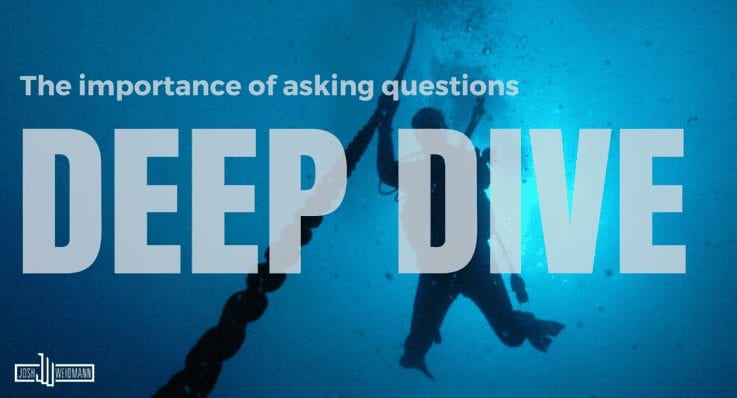Questions are more than just a way to make conversation.
As I start my new role as the Senior Pastor of Grace Chapel, I have been asking a lot of questions. From the very first day, I was asking questions like “where’s the bathroom?” or “where do we keep the staples?”
But as a leader I also have asked deeper questions, more meaningful questions, to understand the philosophy and the culture of this organization. I resolved that in the first few weeks of my time at Grace Chapel, it was important that I clarified for the staff why it is that I ask so many questions.
My first full week on the job, during the first regular all-staff meeting, I told the staff I was going to be asking a lot of questions. I shared with them some of my leadership uniqueness’s, things unique to me as a leader and senior level manager. The first on this list was to explain to them that I ask a lot of questions.
Why so much inquiry?
I don’t ask questions to impose judgement, but I do it to gain understanding. I believe it is a good quality for a leader to ask all sorts of questions such as “Why do we do this?”, “What are we afraid of if we try this?” and “How is it that we accomplished this goal, or something like it, previously?”
Leaders ask questions, not to impose judgement but to gain an understanding. Questions are one of the most powerful tools that a leader possesses. When we ask questions, we are striving to learn what we may not understand. By gaining understanding, then we will be able to give solid input or make decisions. A leader has to, at times, deep-dive into the details. We must ask specific questions about cultural items, decision-making processes or specific attitudes and behaviors within the organization. Once we gather the data, the leader must rise back to the highest level to cast a vision or to set a precedent for culture. A leader can’t keep deep-diving and rising back to high levels of leadership effectively if they are not asking good questions.
It is important that we ask a lot of questions, but we also must clarify why we ask questions, for those we are leading. It is not to impose judgement, but to gain understanding.







![Where is God when Discouragement Sets In? [Sermon]](https://joshweidmann.com/wp-content/uploads/2022/06/paola-chaaya-eAkjzXCU0p0-unsplash-180x135.jpg)

![How to Help Kids with Anxiety [video]](https://joshweidmann.com/wp-content/uploads/2020/07/mladen-borisov-RzbUUaP2JXY-unsplash-180x135.jpg)




